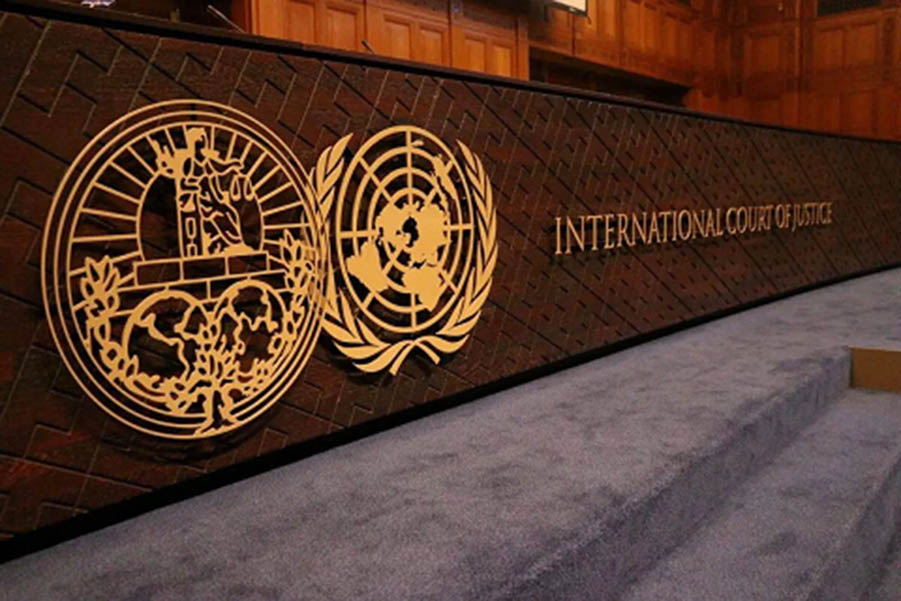Hearings by the International Court of Justice (ICJ) of an application by Guyana for provisional measures against a Venezuelan referendum have been adjusted following a request by Caracas.
The hearings were originally set for:
Tuesday 14 November 2023 10 a.m.-11.30 a.m.: Oral argument (Guyana)
3 p.m.-4.30 p.m.: Oral argument (Venezuela)
A press release yesterday from the ICJ said that the revised hearings are as follows:
Tuesday 14 November 2023 10 a.m.-11.30 a.m.: Oral argument (Guyana)
Wednesday 15 November 2023 10 a.m.-11.30 a.m.: Oral argument (Venezuela)
Members of the diplomatic corps who had already registered to attend the oral argument of Venezuela, initially scheduled to take place on 14 November, have automatically been re-registered for the hearing now scheduled on Wednesday 15 November. Members of the diplomatic corps who
have not yet registered can still do so by completing the following form by no later than Sunday
12 November 2023 at midnight (The Hague time).
Members of the media who had already filled out the accreditation form do not need to do so again. Members of the media who have not yet sought accreditation can do so by completing the following form by no later than Sunday 12 November 2023 at midnight (The Hague time).
On October 30, Guyana requested the Court to indicate the following provisional measures:
“1. Venezuela shall not proceed with the Consultative Referendum planned for 3 December 2023 in its present form;
2. In particular, Venezuela shall not include the First, Third or Fifth questions in the Consultative Referendum;
3. Nor shall Venezuela include within the ‘Consultative Referendum’ planned, or any other public referendum, any question encroaching upon the legal issues to be determined by the Court in its Judgment on the Merits, including (but not limited to):
a. the legal validity and binding effect of the 1899 Award;
b. sovereignty over the territory between the Essequibo River, and the boundary established by the 1899 Award and the 1905 Agreement; and
c. the purported creation of the State of ‘Guayana Esequiba’ and any associated measures, including the granting of Venezuelan citizenship and national identity cards. The questions being asked at the Venezuelan referendum are:
Do you agree to reject by all means in accordance with the law the line fraudulently imposed by the Paris Arbitration Award of 1899 that seeks to deprive us of our Guayana Esequiba?
Do you support the 1966 Geneva Agreement as the only valid legal instrument to reach a practical and satisfactory solution for Venezuela and Guyana regarding the controversy over the territory of Guayana Esequiba?
Do you agree with Venezuela’s historical position of not recognizing the jurisdiction of the International Court of Justice to resolve the territorial controversy over Guayana Esequiba?
Do you agree to oppose by all means in accordance with the law Guyana’s claim to unilaterally dispose of a sea pending delimitation illegally and in violation of international law?
Do you agree with the creation of the Guayana Esequiba state and the development of an accelerated plan for the comprehensive care of the current and future population of that territory that includes, among others, the granting of citizenship and Venezuelan identity card in accordance with the Geneva Agreement and international law, consequently incorporating said state on the map of Venezuelan territory?






